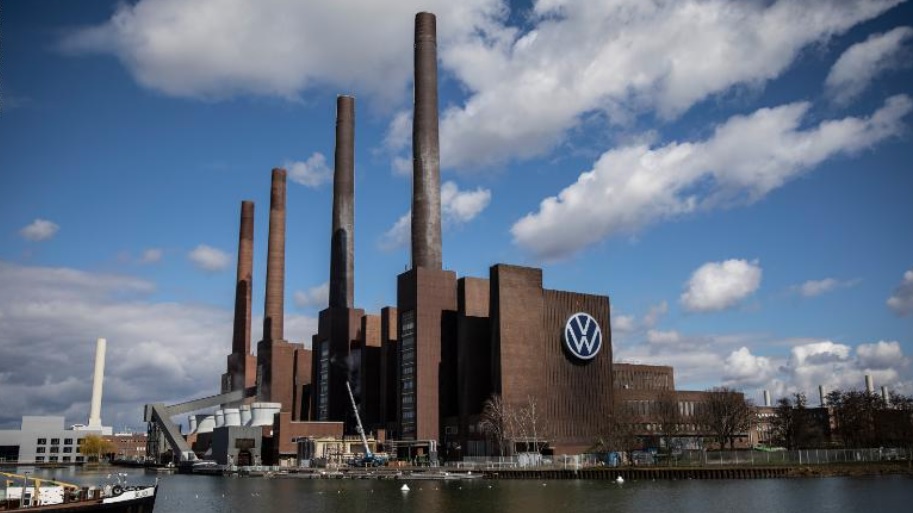Germany without gas? And Volkswagen breaks through elsewhere

Volkswagen is planning to move part of its production activities outside the European countries that will most suffer from the energy crisis unleashed by Putin. Here are which nations could benefit from industrial reorganization
After the chip crisis, which forced several car manufacturers to revolutionize the production and projects of cars under development, the gas crisis appears. We do not know what winter will be and the sudden drop in temperatures certainly does not leave much room for optimism. For this reason, many industries, at least the more structured ones, are already considering relocating production elsewhere, aware that the time may come when the governments of half of Europe will have to choose whether to disconnect the gas from energy-intensive plants or the population. Volkswagen, despite having reiterated that it has made "the best possible preparations" is among them.
HOW VOLKSWAGEN MOVES
“Among the medium-term hypotheses, we are focusing on a greater localization of supplies, on a transfer of production capacity and on purely technical solutions”, explained the purchasing manager, Geng Wu , in a note taken by Bloomberg . Wu admitted that the emergency solutions being studied on the upper floors are "similar to those that have already become common practice in the context of the challenges related to the shortage of semiconductors and other recent supply chain disruptions." However, there is a difference: while the car manufacturers have waited a long time before revolutionizing production chains and supply chains due to the absence of semiconductors, here the luggage would seem ready and the risk is to be late anyway.
FACTORIES AT RISK
Of course, an important Group like the German one does not need to move: with 122 plants scattered around the four corners of the globe, it is enough to reorganize supplies and components. Almost certainly, however, the jobs at home will slim down, where VW has about 30 plants (28, to be precise), from Zwickau to Dresden, passing through Osnabruck, Emden, Hanover and obviously Wolfsburg. Probably the same speech will be made for the factories in Ingolstadt and Neckarsulm that produce Audi, while it will be necessary to understand whether Porsche will be interested as well.
And then there are those in Eastern Europe, in Hungary, in Gyor, in the Czech Republic in Kvasiny and Mlada Boleslav, where Skoda and the maxi plant in Bratislava , Slovakia are built. All these plants, being in countries linked to Russian supplies, risk being united by the same destiny. The head of external relations Thomas Steg has already put forward the demands of Volkswagen: “Politicians must curb the current uncontrolled boom in gas and electricity prices. Otherwise, small and medium-sized enterprises, especially energy-intensive ones, will have major problems and will have to reduce or stop production ”.
If the German locomotive risks no longer snorting, running out of gas (supplies from the USA, Canada, Norway and Holland will not be enough to replace the flows of Nord Stream 1 and 2 and in fact Chancellor Olaf Scholz is already looking for new suppliers ), the relocation could favor other plants, those hitherto considered peripheral. Going by logic, those of the Asian area (more than 30) are excluded for obvious reasons, both because they are too distant, and because they are mainly focused on electric, as well as those of the USA. So the choice will necessarily fall in Europe, between Southern Europe (especially in Spain, which in addition to being able to rely on its own gas stocks, does not have the German continental climate) and Northern Europe, where temperatures are colder but gas is not a problem.
WHAT WILL BE ABOUT THE ELECTRIC PLAN?
On the electric front, the German brand is not only investing in China: let's not forget that Volkswagen plans to build six battery plants in Europe by 2030, starting with Salzgitter. It remains to be seen whether the current energy crisis risks changing plans or simply slowing them down. At the moment, the answer seems to be that work will continue on the electrification of the brand in good speed: PowerCo, the battery unit of Volkswagen, has in fact just announced an all-European joint venture with the Belgian Umicore for 3 billion euros. Umicore will supply PowerCo's European battery cell factories starting in 2025, starting with the Volkswagen plant in Salzgitter.
The joint venture will aim for an annual capacity of 40 gigawatt hours (GWh) in 2026, with the goal of reaching 160 GWh – enough to power approximately 2.2 million fully electric vehicles – by the end of the decade. Both partners will share costs, investments and profits equally.
This is a machine translation from Italian language of a post published on Start Magazine at the URL https://www.startmag.it/smartcity/germania-senza-gas-e-volkswagen-sgasa-altrove/ on Mon, 26 Sep 2022 11:46:34 +0000.
